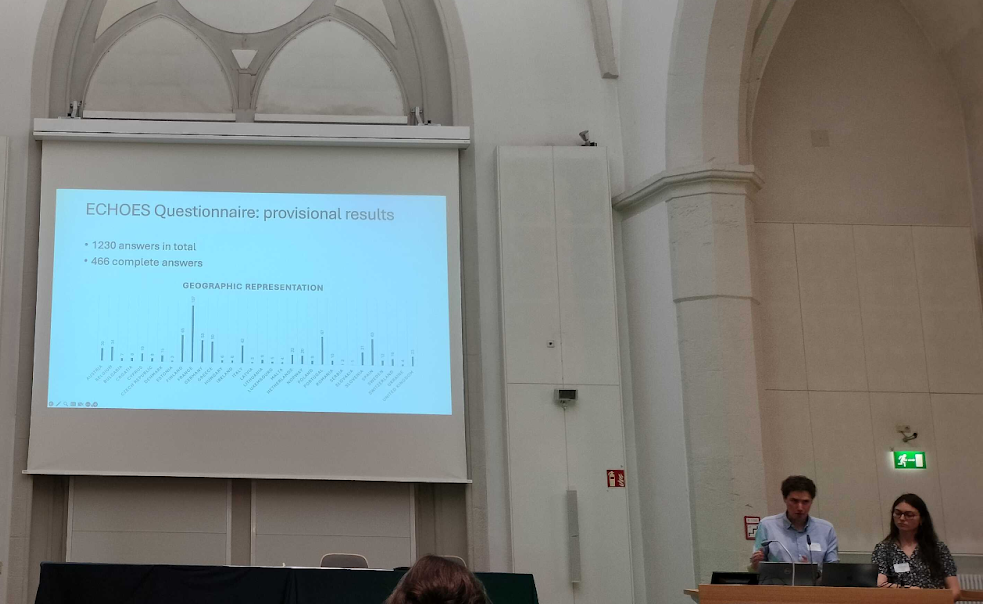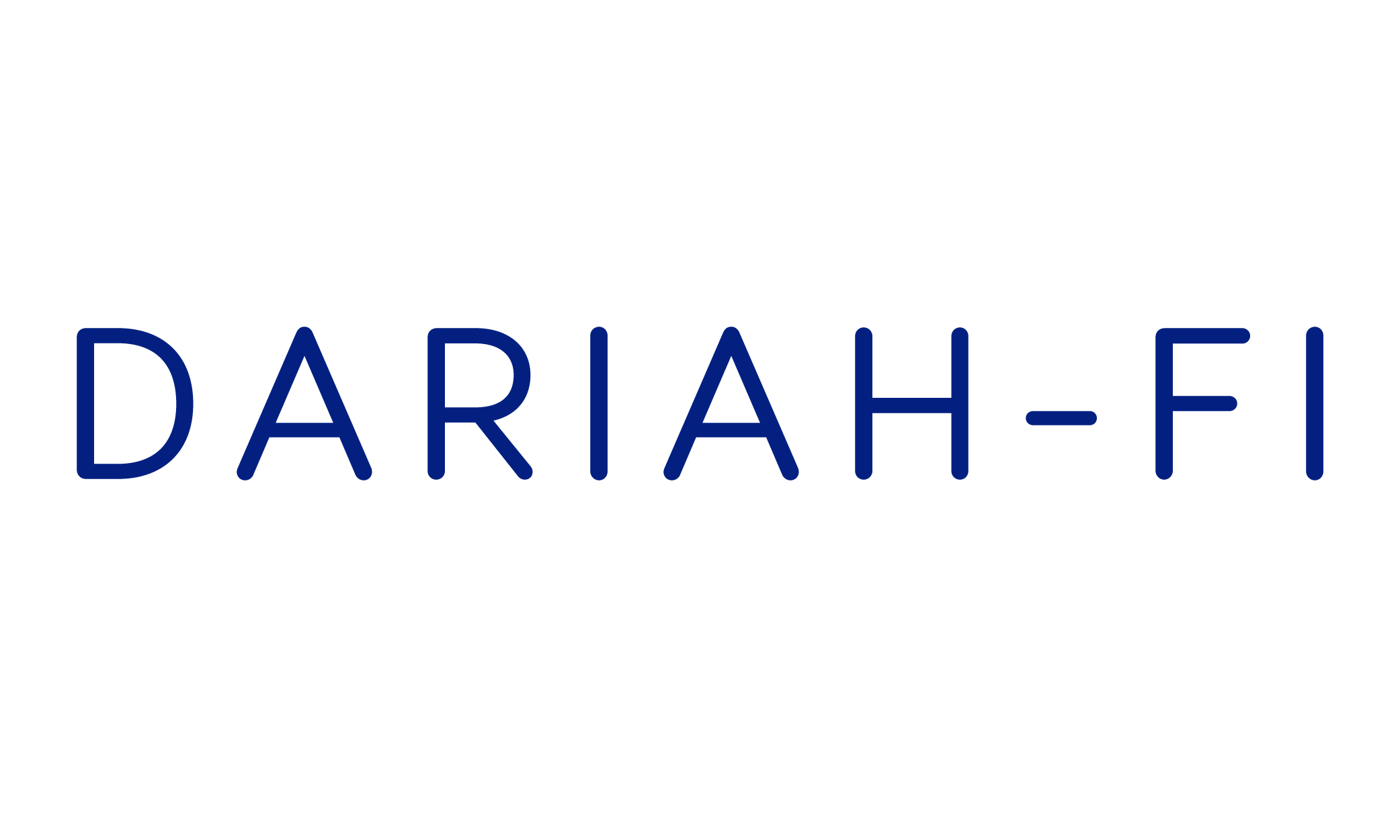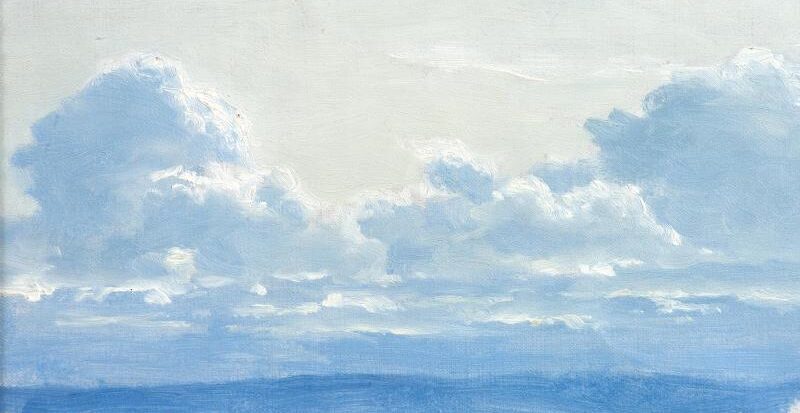The eve of the DARIAH Annual event was dedicated to working groups that act as research networks across Europe for diverse fields. Working groups are the main mechanism to benefit from the DARIAH ERIC, both financially and by enabling collaboration among infrastructure-oriented SSH scholars and experts. As the main theme of this year’s Annual event was “The past”, in this post from the DARIAH Annual event series, we report on initiatives and groups that aim to facilitate access to and re-use of cultural heritage data.
The European Cultural Heritage Cloud (ECCCH) is a shared platform designed to provide heritage professionals and researchers with access to data, scientific resources, training, and advanced digital tools. This platform is built by the ECHOES project (European Cloud for Heritage Open Science) that held a workshop at the Annual event to prototype their take on empathy maps. These are design tools aimed at understanding users from an affective viewpoint. In this case, the idea was that these empathy map templates / the empathy mapping process will be used to source requirements for tools built on top of the ECCCH, as it was thought it would be easier to get end-users engaged by asking them to answer affective questions as opposed to asking them to list dull requirements.
In relation to Finland, a high point of the workshop was when results from the ECHOES community consultation were shortly shared, showing Finland to be particularly well represented (being third in the number of answers after France and Portugal!).

An important stakeholder group of this Pan-European Heritage Cloud project are research libraries. Representatives from them met in the first-ever in-person meeting of the new Library Working Group. While the evaluation of this proposed working group is still ongoing, the meeting made it possible to discuss motivations behind the initiative, the various topics the group should particularly address in the future, and the linkages to existing WGs (such as Bibliographical data, AI, and many others). The Director of DARIAH Sally Chambers introduced the Library Collections as Data project, an initiative that has published a checklist and workflow. Then Filip Kerch presented the DH4DL project. This group will seek to promote knowledge-sharing and cooperation between libraries and researchers, to do advocacy work and to facilitate cooperation with library and other cultural heritage networks as well as with relevant projects. A quick survey of views among participants regarding important topics to address in the future included: collections as data, standards, AI, and training and support for researchers.

From the DARIAH-FI ecosystem, two projects led by the Turku Data Science Group at the University of Turku were presented at the Annual event. Julia Matveeva introduced a workflow that enables statistical analyses of bibliographic metadata catalogues (poster). On the last day of the conference, dedicated to demos, Akewak Jeba walked the audience through the process of extracting metadata from Finna, getting easy-to-read overviews, and methods to enrich metadata using FINTO vocabularies, or geographic information. To do this, several R software packages have been recently released.
Today Demos #DARIAH2025 Akewak Jeba from @utu.fi introducing new R packages for FINNA cultural heritage data to structure and enrich metadata with YSO/FINTO vocabularies. Download the package 👉 www.kielipankki.fi/organization…
— DARIAH-FI (@dariahfi.bsky.social) June 19, 2025 at 11:26 AM
Text: Eetu Mäkelä, Päivi Pihlaja, Inés Matres / Images: Eetu Mäkelä; cover image: Pilviä by Eero Järnefelt (Järvenpää Taidemuseo)

